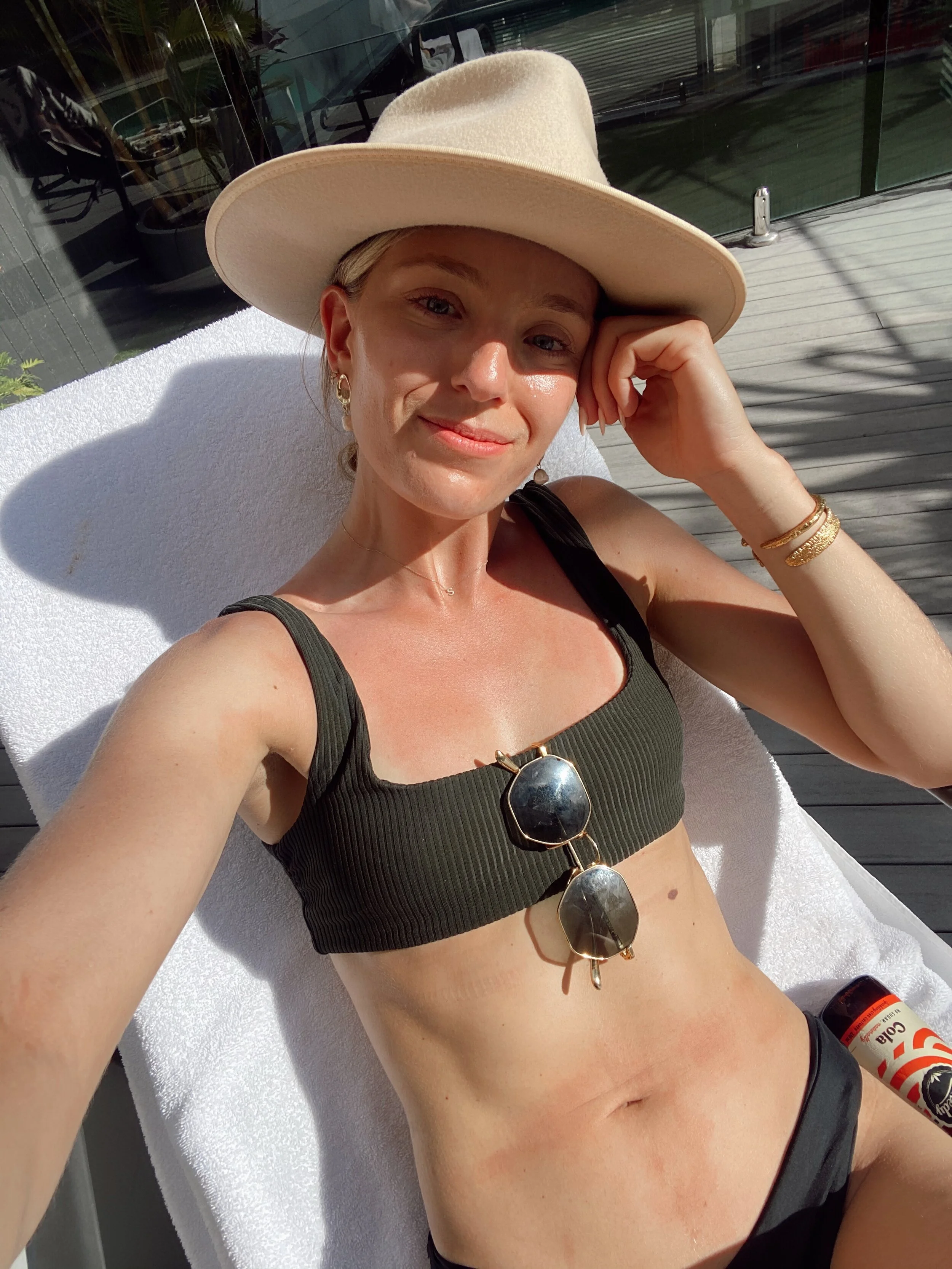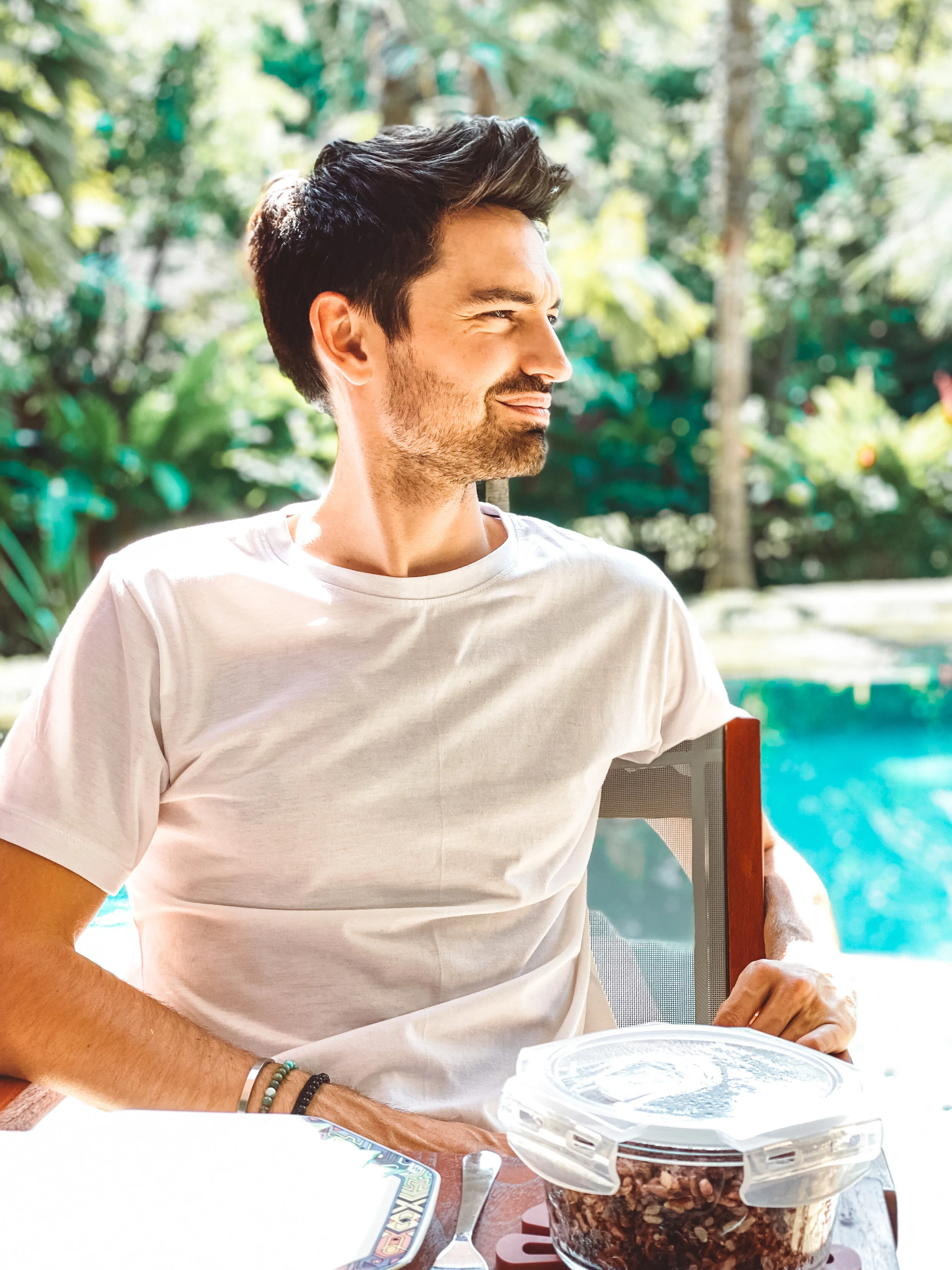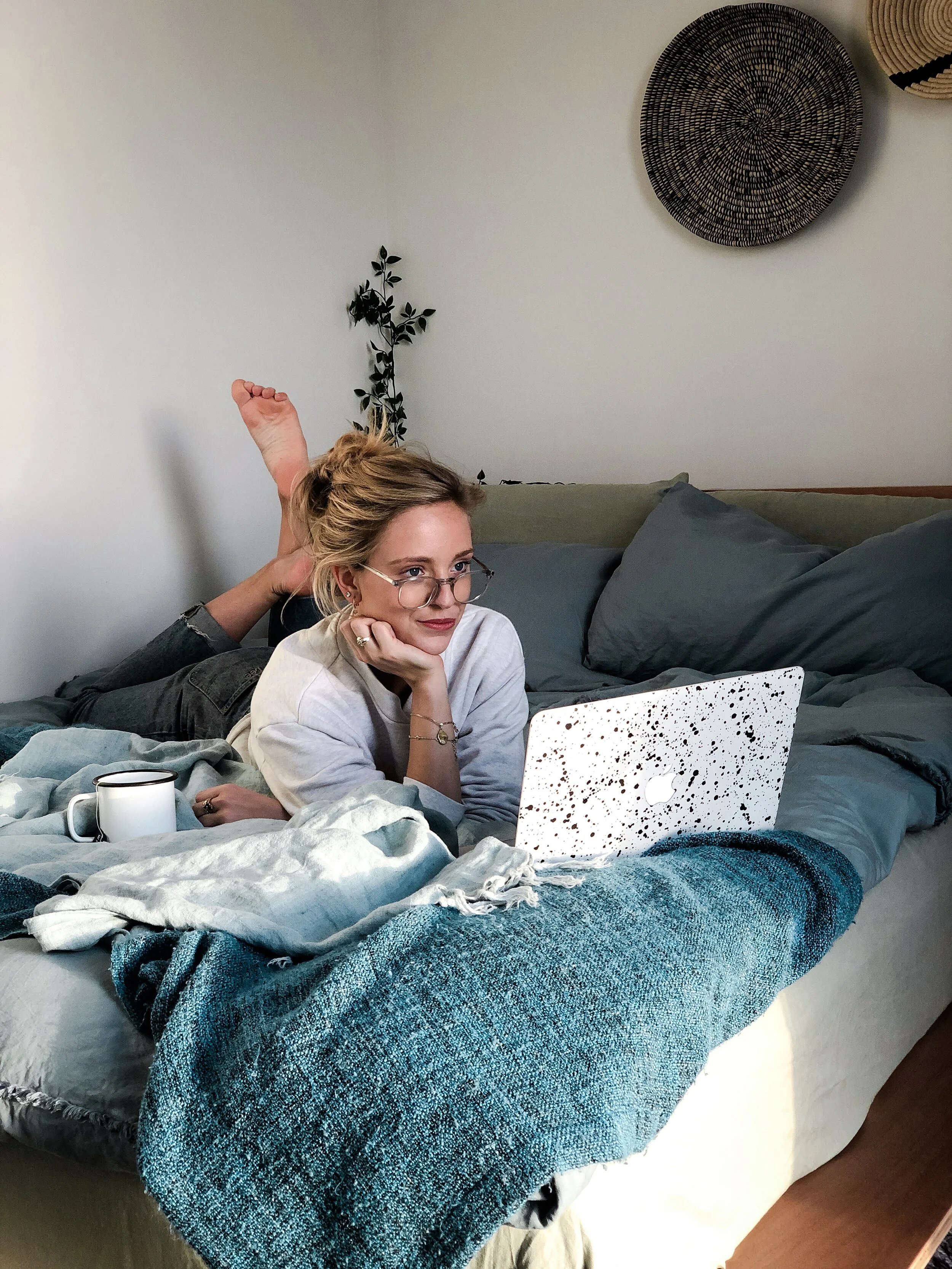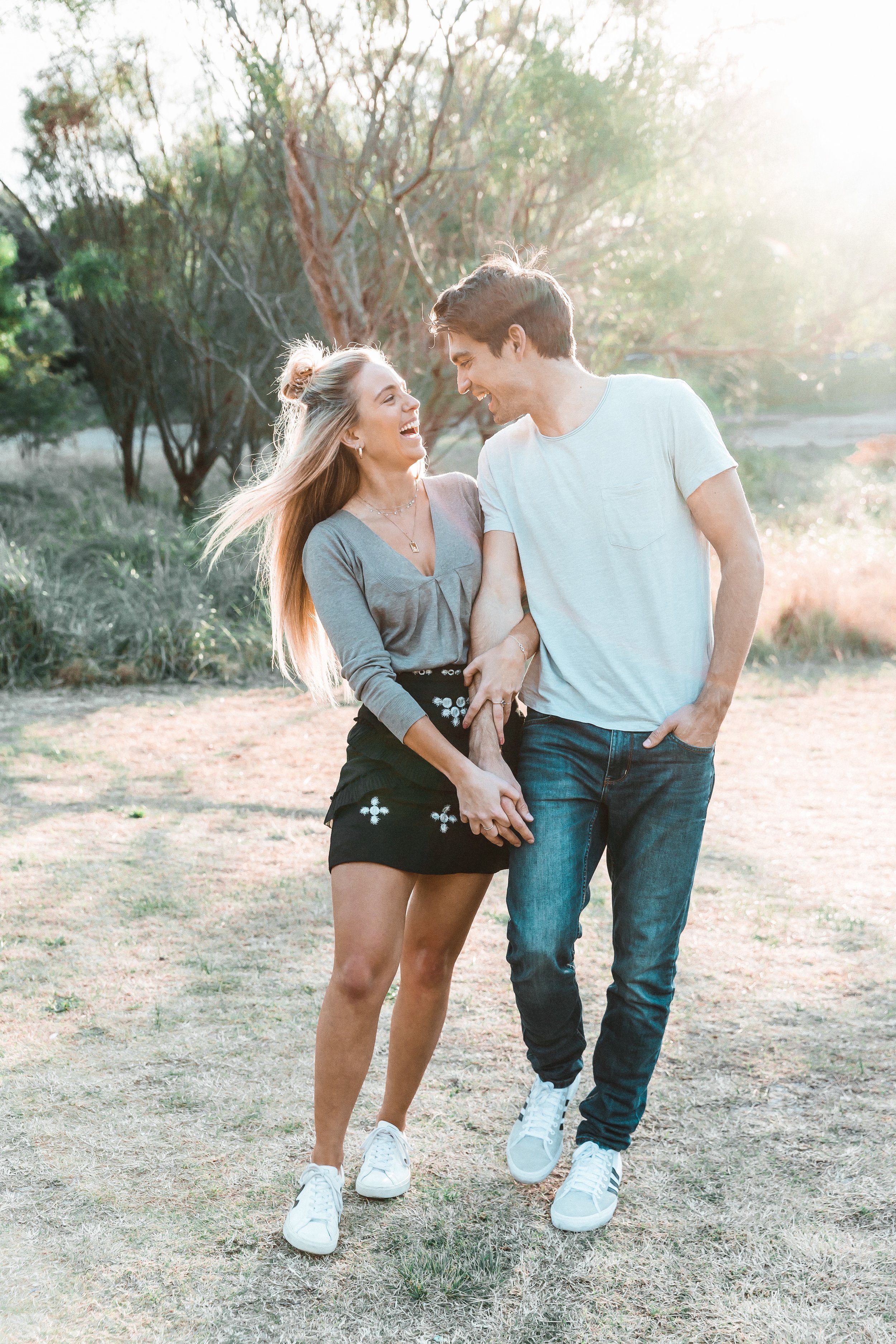How To Navigate Love And Eating Disorders
For about two years, I struggled with my inner daemons on my own.
That is, with my eating disorder, of course.
It was a debilitating feeling, knowing that no one else knew that side of me. I wanted to let someone in, but at the same time I couldn’t think of anything worse than someone finding out the truth.
When I finally found someone who I could confide in – and who didn’t seem to care in the slightest that I had “issues” – it changed the way I dealt with my problems. I finally let someone in. That person was Phil.
But it wasn’t easy.
“THERE WAS NO MANUAL FOR THE TWO OF US, NO “HOW TO” GUIDE.”
I have heard horror stories of how horrifically wrong these things can go and I realize that we actually did a pretty decent job. We could have done each other’s heads in, but the whole experience miraculously only brought us closer together.
Sure, at times, we went from loving relationship to conflictual battleground. For a while there, the eating disorder became a third party in the relationship overshadowing all the good stuff. It was like I was in a relationship with Phil but at the same time was having a love affair with my eating disorder; let’s call him Ed. Many times, I was absent in the relationship with Phil because I was spending too much time with Ed. I was obsessed with Ed and would listen to everything he said, causing me to neglect the things that really mattered.
Over the years, Phil and I have talked a lot about what worked and what didn’t work for us. I’ve not only helped women on the receiving end of Ed’s traumatization, but have also received messages from their partners trying to help navigate their loved ones away from Ed. And so, we wanted to share our experience in navigating a love relationship while battling Ed through both lenses.
I wanted to write this because all the advice blog posts I found online are BLA BLA but nothing personal. It’s great to give some generic tips but I wanted to relate it back to our personal experience, in the hopes that it might help someone who is going through the same at the moment.
Advice for HIM
1. You cannot change a person
They must be willing to change first. All you can do is offer space and support. Remember the saying “The teacher appears when the student is ready.”
My input: This is so true. For the first four months of our relationship, I was a closed book and didn’t share any greater details of my inner world with Phil. If he had confronted at that time, I’m not sure how I would have reacted. It was only when I hit rock bottom that I was truly ready to accept my situation and to admit it to both him and myself.
2. Which means judgment or unsolicited advice is to be banned from all conversations.
Comments like “What’s the big deal? You look great” or “Why don’t you just start eating?” or “Why can’t you just stop eating?” don’t help.
My input: Again, very true. I received comments like this aaaaaall the time and if anything, they pissed me off. The only person that never once ushered a remark like this was Phil, and it made me feel heard and like my problems weren’t squashed or belittled.
3. Understand that it’s not (just) about food.
Most likely, food is a coping mechanism for something else. They might not even know what that something else is, but for that time being understand that there’s more to it than meets the eye. With time, you both will come to understand the root causes and triggers. This is not the result of character flaw or a messed-up intrinsic part of her psyche. It’s simply an addiction cultivated through necessity.
Phil’s input: My initial reaction was simple and straight forward – I wanted to understand better. And so I listened and helped her get everything off her chest. At the time I had no clue about ED’s but I had the sense that there was more to it than just an issue with food. I think that really helped me help her better, because I didn’t belittle the topic only to food.
My input: In the beginning, I didn’t realize how I was using food to numb certain emotions or escape stressful situations. I didn’t see the bigger picture. As time went on and I learnt to understand my triggers, I shared these things with Phil and in turn he learned more about the Why behind everything. The more we both talked about those things, the easier it became to navigate.
4. Situations where food is present or is the focus can be overwhelming.
That includes anything from a date, family dinners, birthday parties, holiday festivities, social gatherings etc. While you might not think twice about these things, they can be a very big deal for her/him.
My input: The first two years or so, Phil was hyper aware of anything that could set me off and was super considerate when it came to our social calendar. If I didn’t want to go to a uni party because I was too anxious about the food there, we stayed in. If we were invited for a dinner at a friend, he helped me navigate my special dietary requirements and kept an eye on me throughout the night. It might sound overprotective or like I was too dependent on him, but I think back then it was vital for me. Over time, this hyper-awareness lessened and eventually Phil didn’t have to think twice about those things, but I really appreciate how he took such good care of me then.
5. Don’t be the food police.
There is a fine line between having your partner’s best interests at heart and playing the food police. Counting the number of chocolate bars left in the sweets pantry when you’re dealing with a binge eater or giving a disapproving look when the person doesn’t finish their meal can be super damaging in the long term. The more you judge – which in their eyes is what you are doing (I know that’s not what you’re doing)– the more they will feel the need to hide their behaviour from you. ED’s grow in secrecy; so don’t let it get to that point. Also try to not harp on the list of stuff that shouldn’t be eaten. Any negative associations with food will only make it harder for them to regain a normal relationship with food.
My input: Uhhh this was a hard one. To be honest, we definitely overstepped the line here. Phil was constantly analyzing what I was eating – obviously out of worry for me– but I often felt caged. Get in a way of a binge eater and their food; and they will get pissed. I often lashed out against Phil when he confronted me or was trying to make sense of why I was sneaking to the fridge at night, or found myself making excuses to have a couple minutes to myself so I could binge. It took us a while to change the dynamics around this, but eventually we got there.
6. Talk talk talk. Talking opens the door to healing.
Remember that they might have never told anyone these things before, so be gentle and kind and patient. And also remind them that there is nothing them could say to make you love them any less. And last thing: try to get them to talk even if they say they don't want to. In my opinion, nothing good comes from closing down and the longer you both ignore stuff, the messier it will get.
My input: I used to be terrified of speaking openly about my eating disorder, especially the binge eating side of things, because I was scared I would look like a freak. As soon as Phil showed me he was genuinely interested in what I had to say and showed absolutely no judgment, I started sharing everything and it felt so good to talk so openly. And yes, there were many times where talking was the last thing I wanted to do and I pushed Phil away, but he kept persisting and in the end I’m very happy that he did. Also: be really clear about what triggers you! It’s so hard for the other party to understand these things, so be super specific and explain exactly what your triggers are.
7. Surprises, changes and spontaneity stress them out.
Chances are the person is a bit of a control freak. They likely rely on a routine and gets thrown off course when that routine gets disturbed. Be prepared for them not coping well with this.
Phil’s input: From my experience, when they feel anxious about anything in their lives whether it’s a job change, move, health issue, fight with a friend or even you, their eating disorder will rear its ugly head. We both knew this, so we’d try and create an environment for the both of us that was as stable as possible.
8. Know that it’s not your job to fix the person.
They themselves have to put in the work. You can be there, be consistently loving, and keep showing up, but beyond that, there may not be much you can do.
Phil’s input: I don’t believe in people trying to fix their partners. I think that I was able to help Stef in many ways, but ultimately she has a very independent personality and came to terms with almost everything by herself. We did learn and grow together and the biggest contributor to that was us communication so well, even when things were tough. I often was the positive voice when she didn’t see the light at the end of the tunnel, but never did I feel like it was my responsibility or duty to fix her.
My input: I always knew that I had to do this myself. Of course Phil was a tremendous help and I love him deeply for that, but in the end I had to put in the work. Surprisingly, all of this never really affected our relationship; we still had the best time! I always tell people that the relationship enabled me to find myself, which is paradoxical in itself, but it really created a safe space for me to discover myself.
9. Be sensitive with the language you use.
Don’t make comments to your or her/his friends, or anyone, about their body. If you’re willing to be supportive of your partner’s recovery, then that means you are willing to be sensitive about the language you use around them.
My input: You might be surprised to hear this, but I know so many women out there who's partners have made their body image issues WORSE through them making remarks. Like whyyyyy…Ladies listen up – if you’re struggling with any type of body image issue and your partner is FUELING that through his comments and behavior, he’s a jerk!
SOME LAST QUESTIONS
FROM ME TO PHIL
What would you say to someone who is hesitating to tell their loved ones about their struggle?
Rip of the bandage and just do it! The you Stef opened up to me (and in turn admit her problems to herself), it allowed your healing to start. I admire you for being strong enough to tell me very early on in our relationship, and I really think that helped you nip it in the butt before it got real bad.
Also, telling others your story and being vulnerable was therapeutic in it’s own way. Not only did you realize your vulnerabilities are actually her strength, but you also received such an outpouring from other’s that were going through the same thing, which was beautiful to watch.
I had some really rough patches during my recovery. In those times, it was especially important to offer both space and support. How did you go about this in particular difficult situation?
I think the perfect middle of knowing exactly when to intervene and when to give space was tricky. In the beginning I always wanted to talk
about everything straight away, but it often led to you pushing me away even more. Overtime I learned that you wanted and needed space to deal with your emotions by yourself – and would come to me when you felt ready. I think that was the hardest part – seeing you suffer but knowing that I needed to wait for you to come to me.
"You need to love yourself first before you can truly love others". What are your thoughts?
Hmm I disagree, that’s like saying you’re unlovable if you don’t love yourself first. I definitely do think you can be in a loving relationship whilst still dealing with your own daemons. In the end for a loving relationship to work, two people must be willing to help each other through their weaknesses and this is what makes a relationship strong. That being said, once you do accept yourself with all the weaknesses and strengths, it obviously has a positive ripple effect and the relationship will start to flow more easily and carefree.
Lastly, what advice could you give to anyone reading this who’s currently in a relationship with someone who’s struggling with an eating disorder? Any words or wisdom you’d like to share?
I think that the most important thing to remember is to communicate as much as possible. I encourage anyone struggling with an eating disorder (or any other issue for that matter) to be open with your family and the people around you as there is nothing worse than not understanding the other person and not knowing how to support them.
I understand that this may not be easy, but it will help in so many ways. I’m a super positive person by nature, and I think that really helped me to see this through. So, stay positive and never give up hope!
〰〰〰














